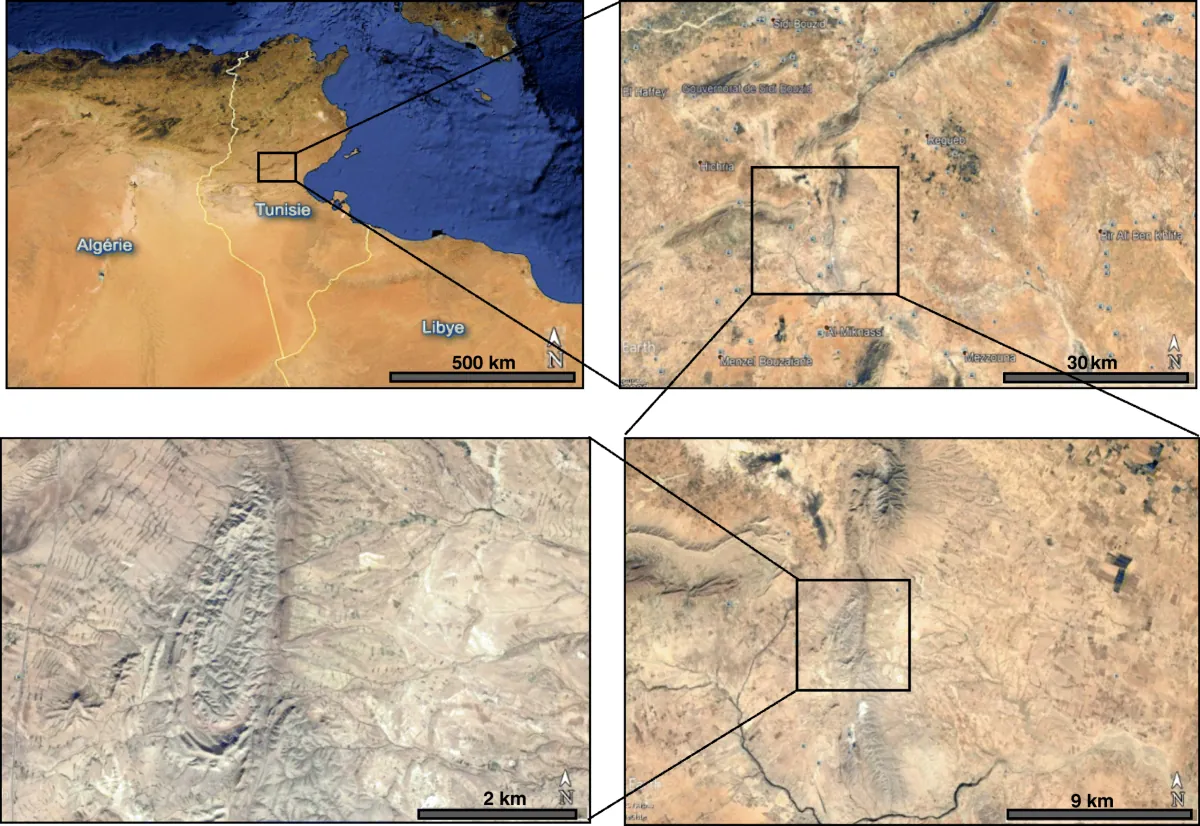In Tunisia's Gafsa Valley, a paradox unfolds: vast phosphate reserves lie beneath a landscape scarred by exploitation and economic hardship. The region, home to the world's fourth-largest phosphate reserve, contributes significantly to Tunisia's economy yet struggles with high unemployment and environmental degradation.
Philippe Thomas, a French geologist, discovered the Gafsa phosphate basin in 1885, marking the beginning of a transformative era for southwestern Tunisia. Today, the state-owned Company of Gafsa Phosphates (CPG) manages this crucial resource, which accounts for 15% of Tunisian exports and 3-4% of the country's GDP.
Despite its economic importance, the phosphate industry has left a trail of environmental and health issues. Abdelbaset Ben Hmida, a Redeyef resident, keeps his windows shut even on the hottest days to protect his asthmatic son from the omnipresent black dust. The nearest hospital is 45 miles away, highlighting the region's lack of adequate healthcare facilities.
The Gafsa governorate embodies a stark contrast: rich in high-value resources yet plagued by an unemployment rate of about 25%. This disparity has fueled social unrest, including the 2008 protests that demanded social justice and employment opportunities in the phosphate sector.
"Little has changed today, but pollution has increased significantly."
Global events have recently thrust Tunisia's phosphate industry into the spotlight. Following Russia's invasion of Ukraine in 2022, phosphate prices soared to $350 per ton in 2023, opening new opportunities for Tunisia amidst its severe financial crisis. However, this potential windfall comes at a significant environmental cost.
Phosphate extraction is depleting water resources crucial for local agriculture. Sobhy, a farmer struggling to irrigate his land, laments, "We could be the country's leading agricultural region if we didn't export all this water." The mining process also pollutes nearby oases, threatening both ecosystems and tourism.
Legal challenges to address these issues face significant obstacles. The Ben Hmida family's case against CPG for their son's health problems was dismissed, highlighting the difficulties in proving direct correlations between phosphate pollution and health impacts.
As global demand for phosphate rises, particularly for use in electric vehicle batteries, Tunisia faces a critical juncture. President Kais Saied has prioritized ramping up domestic export industries, including phosphate, to address the country's economic crisis. However, this push conflicts with environmental concerns and local protests that have disrupted production.
The future of Gafsa's phosphate industry remains uncertain. While it represents a potential economic lifeline for Tunisia, the environmental and social costs are increasingly difficult to ignore. Balancing economic needs with environmental protection and social justice will be crucial for the sustainable development of this resource-rich yet economically struggling region.
